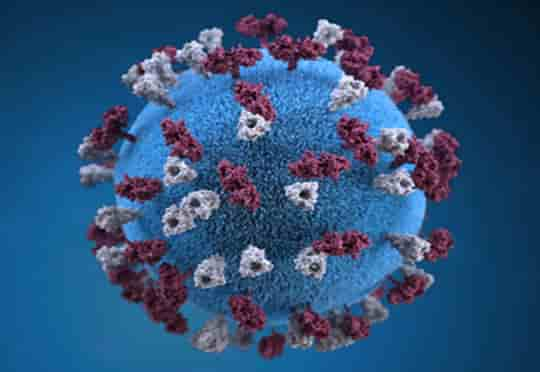There is a two-way relationship between COVID-19 and diabetes.
Coronavirus could cause diabetes in previously healthy patients and also lead to serious complications of pre-existing diabetes, such as a hyperosmolar hyperglycemic state, evidence shows.
Hyperosmolar syndrome is a condition triggered by an infection or illness in diabetics who have extremely high blood sugar.
Clinical cases reported a two-way relationship between diabetes and COVID-19.
We now know that diabetes increases the odds of severe illness and death from coronavirus.
About 30 percent of COVID-19 patients who died have been found to be diabetics.
On the other hand, experts from the CoviDiab Registry project say that individuals who are infected by SARS‐CoV‐2 could develop diabetes and its life-threatening complications.
Although it is not completely clear yet how the virus affects diabetes, a study has revealed that SARS-Cov-2 will enter human cells by binding to ACE2.
ACE2, which is a protein-coding gene, is located in the human tissues, lungs, heart, arteries, and other organs such as liver, pancreas and kidney and is involved in a process that breaks down glucose (blood sugar) to energy.
When the virus enters these organs it probably causes serious abnormalities and disruption to this process, as for years it has been thought that virus infections can cause type 1 diabetes.
Professor Francesco Rubino, lead investigator of the CoviDiab Registry project, said:
“Diabetes is one of the most prevalent chronic diseases and we are now realizing the consequences of the inevitable clash between two pandemics.
Given the short period of human contact with this new coronavirus, the exact mechanism by which the virus influences glucose metabolism is still unclear and we don’t know whether the acute manifestation of diabetes in these patients represent classic type 1, type 2 or possibly a new form of diabetes”.
Professor Paul Zimmet, co-investigator of the CoviDiab Registry project, said:
“We don’t yet know the magnitude of the new onset diabetes in COVID-19 and if it will persist or resolve after the infection; and if so, whether or not or COVID-19 increases risk of future diabetes.
By establishing this Global Registry, we are calling on the international medical community to rapidly share relevant clinical observations that can help answer these questions”.
Professor Stephanie Amiel, co-investigator of the CoviDiab Registry project, said:
“The registry focuses on routinely collected clinical data that will help us examine insulin secretory capacity, insulin resistance and autoimmune antibody status to understand how COVID-19 related diabetes develops, its natural history and best management.
Studying COVID-19-related diabetes may uncover novel mechanisms of disease.”
The study was published in the New England Journal of Medicine (Rubino et al., 2020).

